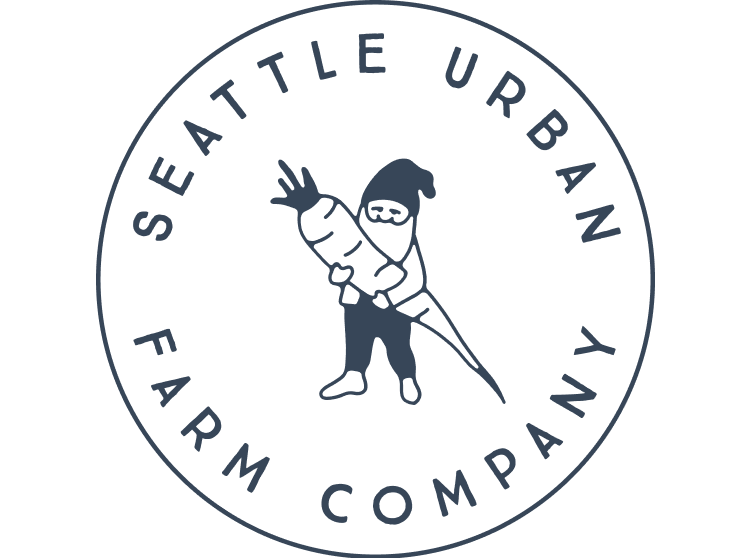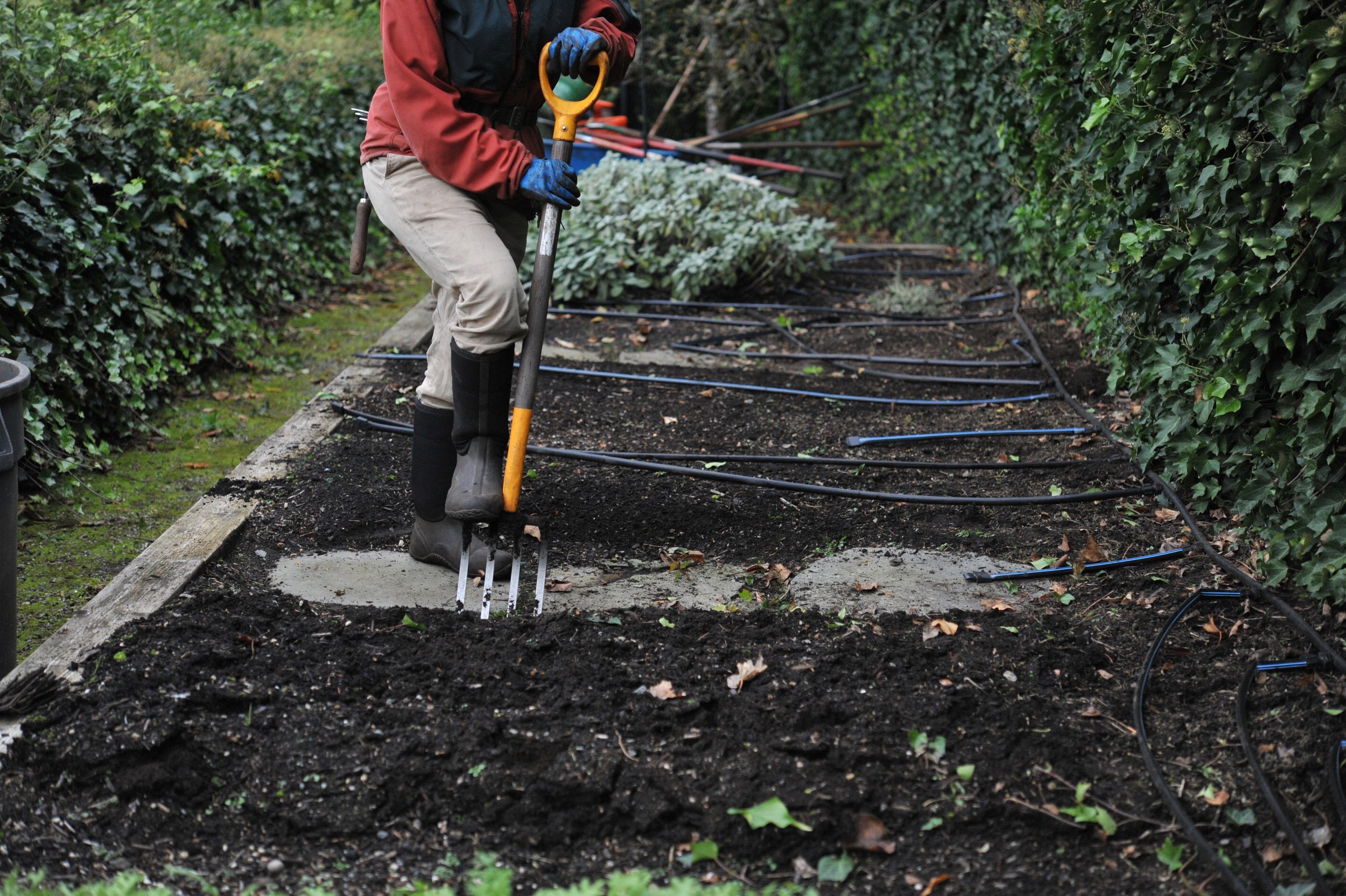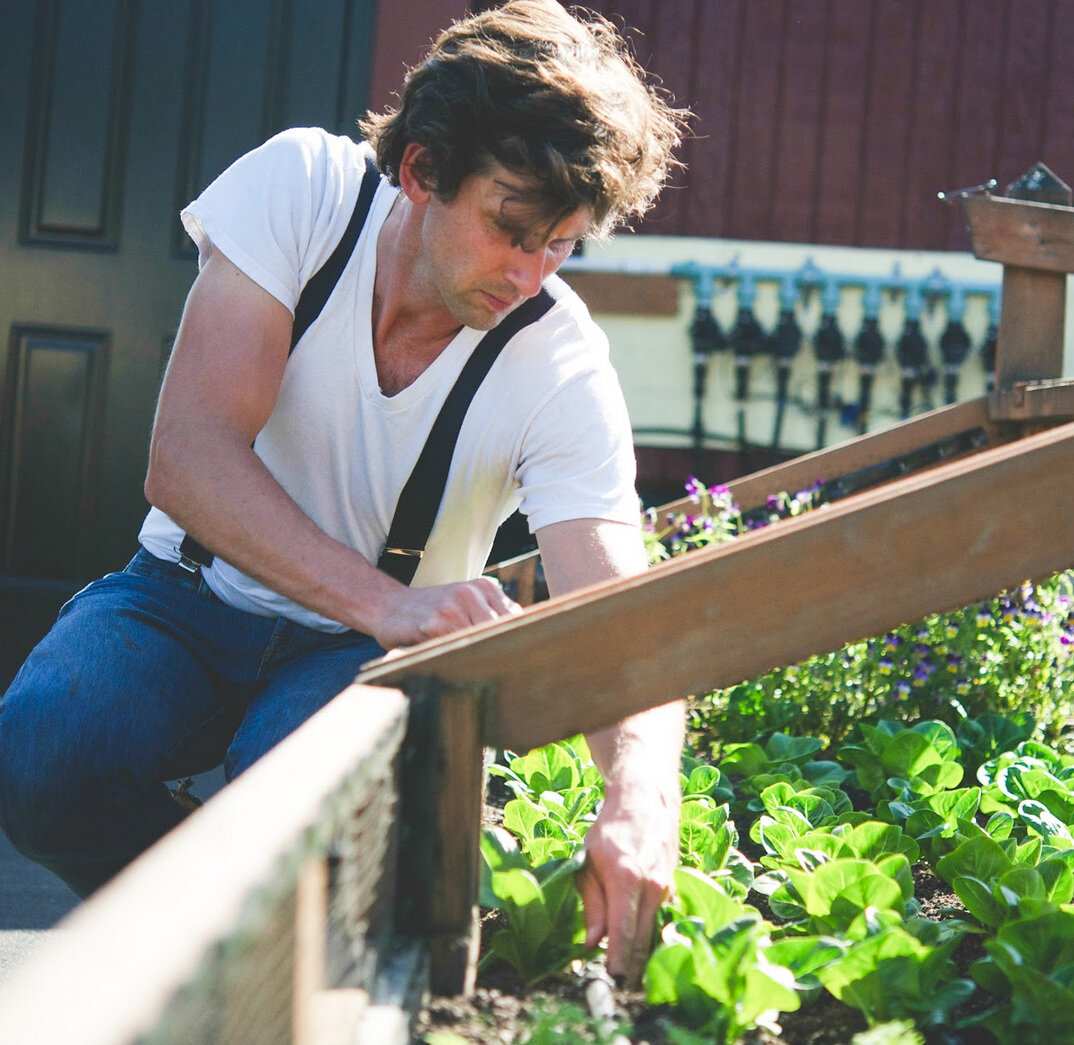The quality of produce you grow is dependent on the quality of your soil. We are big advocates of doing everything possible to make garden soil the best it can be right from the start, and then working year after year to maintain and improve its quality. In this episode we're joined by award winning author Jeff Lowenfels to discuss the soil food web and garden soil ecosystems.
HOW TO LISTEN:
Subscribe on iTunes, Stitcher, Spotify, or any of your favorite podcast players to have new episodes sent directly to your device.
Listen right now in your browser by clicking above.
SHOW NOTES:
In this episode, we discuss:
How to care for your garden soil in a way that supports and enhances the soil food web.
We add a thick layer of compost to our vegetable gardens each season to feed the soils microorganisms. Photo from our most recent book “Grow More Food”
Important Take-aways:
Most existing soils, especially in a residential yard or urban plot, will not have enough available minerals or nutrients to support your vegetable plants. Thus, it’s vital that you take steps to add these amendments when building your garden, and continually maintain them over time. If you’re doing a good job, the soil quality should improve with each gardening season.
Six simple things you can do to maintain your soil quality from one year to the next:
Add a 1- to 2-inch layer of compost over your garden at least once a year.
Monitor and maintain proper soil pH.
Use additional organic fertilizer every season to ensure proper nutrient levels.
Protect your soil with mulch or cover crops, especially during the winter.
Have your soil tested every 2-3 years.
Don’t till your soil.
Key Terms:
Humus: the substance that is created when soil microorganisms break down raw organic matter — is an essential component for good garden soil. It acts as a “glue” to hold soil aggregates together and creates what growers call “tilth” (good soil structure). Humus gives garden soil a wonderful loose crumbly feeling, and yet such soil doesn’t completely collapse into individual particles when it is worked. Humus also acts like a sponge in your soil; it helps maintain proper moisture levels. In soil without humus, water will either leach away too quickly for plants to use (very sandy soil), or will make the soil waterlogged and difficult to work for long periods (very clay-rich soils). Humus-rich soil will take up water and hold it right where your crops can use it. As humus continues to break down, it releases nutrients that your crops can use to grow.
Mycorrhizal Fungi: Mycorrhiza, which translates to “fungus-root,” is defined as a beneficial, or symbiotic relationship between a fungus and the roots of its host plant. This relationship is a natural infection of a plant’s root system in which the plant supplies the fungus with sugars and carbon and receives water and/or nutrients in return. There are several thousand different species of mycorrhiza fungi.
Ryzobial Bacteria: Like Mycorrhizal fungi, Rhizobium bacteria cultures have a symbiotic relationship with their host plant. The ryzobia colonize crop roots to help gather and fix "free" nitrogen in the air, making it more available to the plants, resulting in healthy plant growth and higher yields.
Jeff’s trilogy on soil heath:
Like what you hear? Please share our podcast with a friend. Subscribe on iTunes, Stitcher, Spotify, or any of your favorite podcast players to have new episodes sent directly to your device. And we'd really appreciate you showing us some love by leaving a rating and review on iTunes.
Have a topic you'd like see us dig in to? Email us at eb@seattleurbanfarmco.com
We've opted not to get sponsors this season because of the additional time and energy the process involves. This podcast is a labor of love, and a way to connect with those of you whom we can't work one-on-one with, so if appreciate what we're up to, and you'd like to show your support for the podcast, please consider making one-time contribution here:
More about our guest:
Jeff Lowenfels is the author of an award-winning trilogy of books on soil, Teaming With Microbes: The Organic Gardener’Guide To The Soil Food Web, Teaming With Nutrients: The Organic Gardener’s Guide to Optimizing Plant Nutrition and Teaming With Fungi: The Organic Grower’s Guide to Mycorrhizae.
http://www.jefflowenfels.com/








